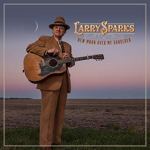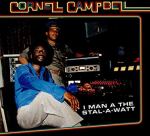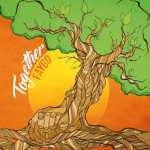PICK OF THE MONTH
 Fred Hersch Trio
Fred Hersch Trio
10 Years/6 Discs
Palmetto
No cat. no.
Fred Hersch’s status as one of the greatest living jazz pianists, composers, and bandleaders is, I think, no longer in question (if it ever was). Although he’s easily compared to Bill Evans, with whom he shares an expansive and sometimes impressionistic pianism, he also has a completely unique and easily recognizable voice, and a piercing musical intelligence that always leaves room for wit and romance. On this boxed set of albums originally released on the Palmetto label between 2010 and 2018, we get to hear him building a deep and powerful musical relationship with the outstanding bassist John Hébert and the subtle and brilliant drummer Eric McPherson. Listening to these discs in sequence, I noticed again both how much I love Hersch’s playing on the uptempo numbers, and also the fact that I love it most on the ballads: listen, for example, to the way he stretches out on “Tristesse” (a dedication to Paul Motion), sounding like a blend of Chopin, Debussy, and Evans. But also check out the wonderfully contrapuntal piano solo on his off-kilter Latin-waltz setting of “You and the Night and the Music,” and his thoughtful solo deconstruction of Thelonious Monk’s “Played Twice”–not to mention his own complex, beautiful compositions, such as the aptly titled “Serpentine.” Hersch constantly acknowledges but never surrenders to the tension between complexity and beauty, and what makes his playing so unique is not so much that he can do things others can’t with their fingers, but rather that he thinks things others don’t with their brains–and then he communicates those things so effectively. Hersch is a national treasure and this box is a treasure chest, one that belongs in every library collection.
CLASSICAL
 Various Composers
Various Composers
Works for Solo Piano
Miyako Arishima
Steinway & Sons (dist. Naxos)
30118
Miyako Arishima is an outstanding young pianist whose debut album presents a bold and unusual program: a brief piece by the great 20th-century composer Toru Takemitsu (Rain Tree Sketch) followed by various works by Polish composers both famous (Frédéric Chopin, Karl Szymanowski) and obscure (Kazimierz Serocki). Chopin occupies the center of the program, in terms of both placement and allocated space; his Barcarolle in F sharp, his Mazurkas Op. 33 and his E-major Scherzo Op. 54 are surrounded by the Takemitsu piece, a selection from Szymanowski’s Métopes Op. 29, his Two Mazurkas Op. 62, and Serocki’s quirky and bracing Suite of Preludes. What unites the program is a sense of formal openness and expressionism (both of which are notable and paradoxical characteristics of Serocki’s duodecaphonically-inclined preludes), and of course the sparkling brilliance of Arishima’s playing. Recommended to all classical collections.
 Various Composers
Various Composers
Northern Fantasies: Selected Works for Clarinet and Piano 1850-1890
Matthew Nelson; Jason Hardink
Soundset Recordings (dist. Albany)
SR 1111
Rick’s Pick
 Michèl Yost; Johann Christoph Vogel
Michèl Yost; Johann Christoph Vogel
Three Clarinet Concertos; Symphony in D
Susanne Heilig; Kurpfälzisches Kammerorchester / Marek Štilec
CPO (dist. Naxos)
555 191-2
The first of these two very different but equally lovely clarinet albums features works by four 19th-century composers of relatively little reputation: Felix Draeseke (1835-1913), August Winding (1835-1899), Niels Gade (1817-1890), and Carl Loewe (1796-1869). On all of these works, the silken-toned clarinetist Matthew Nelson and pianist Jason Hardink showcase the aching beauty and lyricism that typified the best music of the Romantic era, and make a powerful case for these fairly obscure composers. The second disc features three clarinet concertos co-written by the early French virtuoso Michèl Yost and his friend Johann Christoph Vogel, a German composer who spent part of the mid-18th century in Paris. (The program also includes one of Vogel’s symphonies.) Both men died tragically young, but their work stands as a model of high-classical writing, and the playing by soloist Susanne Heilig and the Kurpfälzisches Kammerorchester (on modern instruments) is wonderful. Both albums are strongly recommended, but the Northern Fantasies collection is perhaps the more historically significant of the two.
 Philip Glass
Philip Glass
Annunciation
Paul Barnes; Brooklyn Rider
Orange Mountain Music (dist. PIAS)
OMM 0144
Like several other composers associated with the Minimalist school, over the course of his long and distinguished career Philip Glass has gradually
broadened his stylistic palette, eventually arriving at a point where the previously forbidding repetitiveness of his music has been replaced with expansive harmonic movement and an almost Romantic sense of melodicism and emotionality. Of course, he’s still Philip Glass, so you’ve still got your immediately-recognizable arpeggiated repetitions–it’s just that the chords change more often, and those passages of repetition are broken up much more frequently by long and lyrical lines of melody. On this collection of pieces written between 2010 and 2018, the outstanding Brooklyn Rider string quartet teams up with pianist Paul Barnes to deliver performances of deep warmth and sympathy, carefully but powerfully wringing every drop of emotion out of Glass’s eighth string quartet, his two-movement Annunciation piano quintet, and two briefer chamber works. Recommended.
 François-Joseph Gossec
François-Joseph Gossec
Symphonies, Op. IV
Deutsche Kammerakademie Neuss / Simon Gaudenz
CPO (dist. Naxos)
555 263-2
Franz Joseph Haydn is generally credited with pioneering the symphony as a modern musical form. But at roughly the same time as Haydn there was the French composer François-Joseph Gossec, who, some argue, was actually writing works recognizably in the symphonic genre prior to Haydn’s innovations. (One theory goes that the reason Gossec wasn’t recognized earlier is that he didn’t have access to orchestras capable of realizing his vision.) Those who would like to decide for themselves are advised to check out this lovely performance of the six symphonies in Gossec’s Opus 4, performed with audible joy by the marvelous Deutsche Kammerorchester Neuss under the baton of Simon Gaudenz. Honestly, I’ll let others argue over questions of priority and even over whether Haydn’s early symphonies or Gossec’s are superior in quality. While they argue, I’ll just luxuriate in this hour-plus of pure high-classical pleasure.
 Various Composers
Various Composers
Free America!: Early Songs of Resistance and Rebellion
Boston Camerata / Anne Azéma
Harmonia Mundi (dist. PIAS)
HMM 902628
Rick’s Pick
I grew up in the Boston area and spent my adolescence playing in the Menotomy Fifes and Drums, so it may have been a foregone conclusion that I’d give this collection of Revolutionary War-era songs, hymns, and fife tunes a Rick’s Pick designation. But you don’t have to have been steeped in the culture or the repertoire to recognize both the rough-hewn beauty of this music and the bracing power of its messages of resistance to tyranny. Invariably, there are moments when the classically-trained instrumentalists and singers seem to be smoothing out the rough edges just a bit too much, but that’s rare–and they get extra points for playing the ancient version of “Yankee Doodle,” rather than the more popular modern one. As always with the Boston Camerata, the program is carefully and thematically arranged, and the album is a pleasure from start to finish.
 Cipriano de Rore
Cipriano de Rore
I madrigali a cinque voci (2 discs)
Blue Heron / Scott Metcalfe
Self-released
BHCD 1009
 Cipriano de Rore
Cipriano de Rore
Missa “Vivat Felix Hercules”; Motets
Weser-Renaissance / Manfred Cordes
CPO (dist. Naxos)
777 989-2
These are two very different collections of vocal music by Cipriano de Rore, one of the pivotal composers of the Italian Renaissance. Though he was from the Franco-Flemish region originally, he made his career mainly at court in Venice and Ferrara, where he attracted attention both for his madrigals and his sacred music. The latest album by the outstanding Blue Heron ensemble is a world-premiere recording of de Rore’s first book of five-voice madrigals, and for that reason alone should be considered a must-have for any serious early music collection. The quality of the singing almost goes without saying, given the group’s tremendous track record. Another group with a long-established reputation for Renaissance singing is Weser-Renaissance, whose new album brings together de Rore’s Mass Vivat Felix Hercules (a tribute to his patron Ercole Il d’Este) with various motets, which are distributed before and among the Mass sections. The vocal texture varies from a spare one-voice-per-part approach in the motets to a lusher ten-voice arrangement in the Mass sections, and as always Manfred Cordes pulls beautiful and powerful performances from his ensemble.
 Daniel Lentz
Daniel Lentz
Ending(s)
Twilight String Orchestra; Fahad Siadat / Nicholas Deyoe
New World (dist. Albany)
80815-2
It’s rare to find a contemporary composer who can write music that is accessible without pandering, and that is complex without being forbidding. Over the course of a decades-long career, Daniel Lentz has been exploring ways of striking that balance, and he has arrived at multiple different stylistic solutions. On his latest album, two works reveal his latest strategies: first, on the orchestral work Continental Divide, he uses frankly programmatic techniques to convey a sense of travel across great distances, specifically across the American continent; the music pleasingly recalls some of the middle-period works of John Adams. On the title work, for double string quintet and tenor soloist, he draws on Japanese haiku, on text from the Latin Requiem, and on a prose summary of an atomic explosion, linking those texts to music that is by turns reflective, somber, and even confrontational. Each in a very different way, these are two very powerful pieces, both performed beautifully.
 Giovanni Pierluigi da Palestrina
Giovanni Pierluigi da Palestrina
Lamentations: Book 2
Cinquecento
Hyperion (dist. PIAS)
CDA68284
The lamentations of the Old Testament prophet Jeremiah, expressing his anguish over the destruction of Jerusalem and pleading with its people to return to God, has been one of the most irresistible sources of lyrical inspiration for choral composers throughout the ages. Palestrina’s setting of these texts is fittingly austere and dark, and even more so when sung by the all-male Cinquecento quintet. At times the composer makes use of only three or four voices, creating a mood of somber restraint leavened only by the sweetness of his part-writing. As always, Cinquecento sing with peerless intonation and a careful but not homogeneous blend, and are beautifully recorded.
JAZZ
 Nat King Cole
Nat King Cole
Hittin’ the Ramp: The Early Years (1936-1943) (7 discs)
Resonance
HCD 2042
Rick’s Pick
This magnificent box set was just barely edged out for Pick of the Month by the Fred Hersch retrospective, but it’s arguably an equally great musical treasure, and arguably a more important piece of jazz history. Seven discs of material (much of which has been previously reissued only in inferior bootleg versions, and some of which has never been reissued at all) spanning the first seven years of Nat “King” Cole’s career, along with a generous booklet including historical notes and tributes from other jazz legends along with tons of photos make up this package. One of the first things you’ll notice when cuing up the first disc is the pristine quality of the remastering: rarely has digitized 1930s shellac sounded this clear and clean. You’ll also notice how much pure fun these early recordings are–there are lots of silly novelty tunes, but even the more serious material is played with an effervescent sense of fun that is irresistible. Most of these recordings are made with Cole’s classic trio (guitarist Oscar Moore and bassist Wesley Prince, later replaced by Johnny Miller), but there are guest players and singers on a good number of them. An essential selection for all jazz collections.
 Frank Wess
Frank Wess
The Savoy & Prestige Collection (4 discs)
Enlightenment (dist. MVD)
EN4CD9169
Rick’s Pick
Frank Wess may not have been a household name, but he was well known and well regarded among his colleagues for his work both as a leader and as a member of Count Basie’s orchestra–and as one of the pioneers of jazz flute. He was also an accomplished saxophonist, but unlike too many saxophonists who assume that being a sax player automatically means you know how to play the flute, he had an academic degree in the latter instrument. You can hear that training in his playing throughout these eight wonderful albums from the 1950s and 1960s, all packaged together in a single four-disc package here. The albums included are Flutes & Reeds (1955), North, South, East… Wess (1956), Opus in Swing (1956), Jazz for Playboys (1957), Opus de Blues (1959), The Frank Wess Quartet (1960), Southern Comfort (1962), and Yo Ho! Poor You, Little Me (1963). In a welcome departure from past practice, the label chose to include a list of all musicians under the title of each album in the booklet, and that list is revelatory: alongside Wess we get to hear pianists Hank Jones and Tommy Flanagan, guitarists Kenny Burrell and Grant Green, drummers Roy Haynes and Ed Thigpen, and many others. The sound quality is very good, considering the fact that these discs were almost certainly “mastered” from vinyl recordings, and the music is consistently marvelous.
 Haruna Fukazawa
Haruna Fukazawa
Departure
Summit
DCD 750
Rick’s Pick
For a more modern take on jazz flute, check out the latest from the outstanding bandleader and composer Haruna Fukazawa, whose Departure is a fiery and brilliant take on modern straight-ahead jazz for the instrument. Here she leads a quintet that also includes saxophonist/flutist Steve Wilson, pianist David Demotta, bassist Bill Moring, and drummer Steve Johns. Fukazawa’s original compositions are especially impressive on this very fine outing and they fit snugly alongside standards like Horace Silver’s “Juicy Lucy,” Billy Strayhorn’s “A Flower Is a Lovesome Thing,” and Fain/Hilliard’s evergreen “Alice in Wonderland.” (Her arrangements of those tunes are outstanding as well.) Perhaps best of all is her warm, woody, swinging tone. This is one of the best jazz flute albums I’ve heard in a long time.
 Rodney Whitaker
Rodney Whitaker
All Too Soon: The Music of Duke Ellington
Origin
82789
Doing an album of Duke Ellington tunes isn’t a tough decision, and any number of fine artists have made perfectly lovely Ellington tribute albums. But from the very first track, bassist and arranger Rodney Whitaker makes it clear that while he’s operating in a mode of love and reverence for America’s greatest jazz composer, he’s not going to be a slavish imitator. Leading a crack sextet, he instead puts his personal imprint on every selection, from the riotous New Orleans-style group improvisation on “Cotton Tail” to the bass solos that precede the heads on “Take the ‘A’ Train” and “Just Squeeze Me” and the rhythmically idiosyncratic treatment of “Caravan” that closes the program. That’s not to say that this is an avant-garde project, by any means; the group plays in a solidly straight-ahead style throughout, and Whitaker’s arrangements are always respectful. It’s just that they’re also unique and personal, and except for the gentle funk setting of “Mood Indigo,” which didn’t seem entirely successful to me, they’re all brilliant. Whitaker’s daughter Rockelle sings on most tracks, and she’s dynamite. Great album altogether.
 Joshua Breakstone Trio
Joshua Breakstone Trio
Children of Art
Capri
74151-2
Having never been a big fan of hard bop, I’ve never spent much time listening to Art Blakey. But when this tribute album came in the mail I sat up and took notice, because it’s by one of my favorite jazz guitarists. On Children of Art, Joshua Breakstone and his trio (bassist Martin Wind, drummer Eliot Zigmund) interpret some of the most popular tunes associated with Blakey and his band, the Jazz Messengers: Benny Golson’s “Stablemates,” Lee Morgan’s “The Witch Doctor,” and Horace Silver’s heartbreakingly lovely “Lonely Woman” are all on the program, which ends with a personal dedication from Breakstone himself, the original composition “Children of Art.” As always, Breakstone’s tone is warm and soft even as his playing is sharp and incisive, and his rhythm section supports him beautifully.
 Adrian Cunningham & His Friends
Adrian Cunningham & His Friends
Play Lerner & Loewe
Arbors
ARCD19470
Here’s another brilliant album featuring the Fred Hersch Trio. But this one is led by the equally wonderful reedman Adrian Cunningham, and offers a program consisting entirely of compositions by American Songbook legends Alan Jay Lerner and Frederick Loewe. This duo was responsible for the songs from such musicals as Brigadoon, My Fair Lady, and Camelot, and here Cunningham and crew subject songs from that repertoire to a host of unusual (but always loving) revisions. For example, “I Could Have Danced All Night” is given a slippery second-line feel (complete with greasy trombone work by Wycliffe Gordon); “The Rain in Spain” gets a sort of Latin-Caribbean arrangement with flute; “Thank Heaven for Little Girls” moves from a herky-jerk head to a powerfully swinging solos section (on which guest Randy Brecker plays some honey-smooth flugelhorn). Cunningham himself jumps from tenor sax to flute to clarinet with grace and always plays with both wit and insight. This is an unusual and really quite wonderful album.
FOLK/COUNTRY
 Dick Gaughan
Dick Gaughan
The “Harvard” Tapes: Definitive Gaughan Concert from 1982
Greentrax (dist. MVD)
CDTRAX406
Scottish folksinger Dick Gaughan has been a legend in Celtic-music circles since his recording career began in 1970; adepts will remember him as a former member of Boys of the Lough as well as a distinguished solo artist. His sharp, reedy voice and his advanced guitar technique (easy to overlook if you aren’t paying close attention, because he rarely intentionally draws attention to it) make him an unusually compelling performer in a solo acoustic setting, as you can hear from this concert recorded at the Cambridge Old Baptist Church in 1982 and never previously released. Highlights include the utterly heartbreaking “Song for Ireland” and the ballad “Glenlogie” (“the only ballad I’ve ever heard that had a happy ending”), and there’s even a medley of instrumental reels on which you can really get a sense of his guitar chops. Recommended to all folk collections.
 Larry Sparks
Larry Sparks
New Moon over My Shoulder
Rebel
REB-CD-1870
“This year 2019 I am celebrating 50 years with my band Larry Sparks and the Lonesome Ramblers… As always, I keep my music and singing on the old path and do it my way.” That’s the slightly defiant statement that you see printed inside the package of this, the 72-year-old bluegrass legend’s latest album, and it tells you exactly what to expect. Does his voice cut through in quite the same way it did when he was singing lead for Ralph Stanley’s band in the 1960s? Well, no–but it still carries plenty of soulful punch, and those aging fingers can still spin out a mean flatpicking solo break. And the songs he’s chosen here are excellent: a nod to his old boss (“I Only Exist”), some great gospel numbers (“New Highway,” “Green Pastures in the Sky”), and the absolutely perfect romantic lament “I Was Wrong.” Yes, Sparks is indeed keeping his music and singing “on the old path,” but he still does it in a unique style.
 The Mavericks
The Mavericks
Play the Hits
Mono Mundo (dist. Thirty Tigers)
MMR005-CD
Rick’s Pick
About 20 years ago, my wife and I were idly flipping TV channels one night when we saw something that stopped us dead: it was a live performance by a band that was dressed kind of like Cuban cowboys, playing something that sounded like country music except that they had a big horn section–and the rhythm of the song they were performing sounded an awful lot like… well, ska. We were completely intrigued, but the show ended before we could figure out who the band was. A few days later we were at dinner with some friends and described what we’d seen. “Oh,” one of them said, his face lighting up, “I bet that was the Mavericks.” And sure enough, that’s who it was, and our whole family have been fans ever since. The aptly-named band has now been irritating country radio programmers for a full three decades, and is celebrating that milestone with a covers album. The repertoire is just as eclectic as you’d expect, with songs by John Anderson (“Swingin'”) and Bruce Springsteen (“Hungry Heart,” in a swing-ska arrangement) rubbing up against Outlaw Country classics (“Are You Sure Hank Done It This Way,” “Blue Eyes Cryin’ in the Rain”) and an Elvis cover (“Don’t Be Cruel”). Raul Malo’s chesty baritone voice remains a force of nature, and the whole album is exactly the party you’d expect it to be. For all collections.
ROCK/POP
 The Blasters
The Blasters
Dark Night: Live in Philly (2 discs)
Liberation Hall (dist. MVD)
LIB-5000
Rick’s Pick
If you listen to the Blasters’ live albums from the 2000s, you’re witness to one of the great tragedies of American rock’n’roll: the destruction of Phil Alvin’s voice. Alvin’s singing was one of the wonders of 1980s popular music, and his unapologetic celebration of rockabilly, the blues, and vintage R&B (alongside his brother, the brilliant guitarist and songwriter Dave Alvin, and the crack rhythm section of bassist John Bazz and drummer Bill Bateman) resulted in some of the most exciting rock recordings of that period. But by the 2000s, decades of cigarette smoking had taken their toll and he could no longer hit the high notes on wonderful songs like “Marie, Marie” and “Blue Shadows.” So this live recording from a Philadelphia date in 1986 is particularly welcome; it finds Alvin still in his full vocal glory, and the band as tight and energetic as ever (though Dave had sadly left the band by then, replaced on lead guitar by the excellent Hollywood Fats). The live sound is clean and rich, and although the package would have benefited from the editing-out of a bit more between-song noodling, it’s a magnificent recording overall.
 R.E.M.
R.E.M.
Monster: 25th Anniversary Deluxe Edition (5 CD/1 Blu-Ray)
Craft
CR00237
Rick’s Pick
Few bands have been able to repackage their music with the kind of savvy shown by R.E.M. At this point, all of their seminal albums have been reissued in deluxe boxes that include demos, live sets, posters, postcards, and the other little bits of realia that their fans treasure. But this super-deluxe reissue package for their 1995 album Monster really sets a new standard of wild elaboration. Disc 1 contains the original album; Disc 2 consists of previously-unreleased demos–not of the songs that would eventually be included, but odds and ends (mostly instrumental) that didn’t make the final cut. Disc 3 is the original album in a remixed version; Discs 4 and 5 document a Chicago concert from the Monster tour, and the sixth is a Blu-Ray disc that offers surround-sound and hi-def audio versions of the album plus a concert film and six videos that were released in conjunction with the original version. Is it more than anyone except diehard fans would need? Eh, maybe. But there are a lot of diehard R.E.M. fans out there–and, conveniently for libraries, the package is only slightly larger around than a standard CD case, so you can shelve it easily for circulation. Oh, and the music is great, of course–highlight tracks include the hits “What’s the Frequency , Kenneth?” and “Bang and Blame,” both of which find the band delivering a much more aggressive and rockish sound than its previous few albums would have led one to expect. Very highly recommended.
 Various Artists
Various Artists
No Other Love: Midwest Gospel (1965-1978)
Tompkins Square
TSQ 5661
This strange, eerie, and engaging compilation was put together by Ramona Stout, who came into possession of the fourteen very rare 45-RPM singles that make up this program between 2006 and 2011 while crate-digging in Chicago record shops. Some of them were recorded as vanity projects and released in fewer than 100 copies; none of these except one has ever been commercially issued since its original release. Some of the songs are by working groups, others by church congregations or family bands. Some of the studio tracks have the sound quality of field recordings, and all of them are made spooky by the combination of religious hope and faith expressed in the music and the hollow, flat sonic quality of the vinyl-mastered sound. This may not be music that you’ll cue up when you’re in the mood for an infusion of gospel exuberance, but for libraries supporting a curriculum in American popular music in general or in African-American gospel music in particular, these songs (and the track-by-track notes that accompany them) are a treasure trove.
 Big Star
Big Star
In Space (reissue)
Omnivore
DVCD-338
Rick’s Pick
Given their outsized influence on the world of rock and pop music, it’s weird to contemplate that Big Star (led by legendary singer and songwriter Alex Chilton) only existed for four years and only recorded three albums in the early 1970s. Of course, the story is a bit more complicated than that: in 1989 the group re-formed and went on tour, and kept touring for several years. Then in 2005 they made this album, which is now being reissued on CD with six bonus tracks (most of which are demos and unreleased songs that will be of interest only to the hardest of the hardcore Big Star fanbase). I mean it as a compliment when I say that this 2005 album sounds like it could have been recorded in 1974, when Chilton and crew were still creating the architecture of what would eventually come to be called power pop and were releasing songs that would inspire a generation of popsters and punk rockers alike. I have to confess that I’ve never paid Big Star the attention I should have, and that this album has convinced me to go back and remedy that mistake. For all libraries.
 Steffi X Virginia
Steffi X Virginia
Work a Change (vinyl & digital only)
Ostgut Ton
o-ton122
Any music that characterizes itself as “dancefloor melancholy” is going to attract my attention, and even if I find myself puzzled by the description of this release as a “double EP” (er, how is that not just an LP?), I’m definitely engaged by the music. Dancefloor? Definitely: there’s no denying the funky immediacy of tracks like the bustling “Help Me Understand” and the disjointedly chugging “Until You’re Begging.” Melancholy? You bet: everywhere the mood is dark, spacey, and kind of grumpy, though I mean that in a good way. That mood is partly created by the modes and textures of the music itself, and partly by the way in which the vocals are obscured and smeared in the production process. All in all, this is very nifty avant-garde-ish dance music that rewards repeated listening.
 Terror Danjah
Terror Danjah
Invasion (vinyl & digital only)
Tru Thoughts (dist. Redeye)
TRUCD373
While we who are his fans await word on Terror Danjah’s health (he’s been in a coma since August, and further information about his condition has been sparse to nonexistent), we can take some comfort in the release of the album he was working on before his decline, and on the fact that his label has committed to donate all of its share of royalties to him and his family in support of his medical costs. The music itself? Brilliant in the usual Terror way: dark, dank, and gritty instrumental grooves that demonstrate, once again, his complete mastery of the grime genre. Every track churns and grinds with the slow but inexorable intensity of a herd of elephants, leavened with the occasional fragment of sunny melody, string-section flourish, and his trademark maniacal laugh sample. If anyone has ever asked you “What’s the big deal about grime, anyway?”, play them this. Or any other Terror album, frankly. Here’s hoping that by the time you read this he’ll be out of the hospital.
WORLD/ETHNIC
 Lakou Mizik
Lakou Mizik
HaitiaNola
Cumbancha
CMB-CD-122
The cultural connections between New Orleans and Haiti run deep, and those connections are celebrated on the latest album from Haitian ensemble Lakou Mizik, for which they invited along such Crescent City guests as Trombone Shorty, Cyril Neville, the Preservation Hall Jazz Band, and Raja Kassis, among others. The result is just as joyous and rollicking as you’d imagine: a creole version of the New Orleans standard “Iko Iko,” a celebration of mothers (“Manman Lavi”), a glimpse of vodou liturgical ritual (“Lakou Dogwe”), a medley of traditional Haitian songs served up as a steaming bowl of Southern Louisiana gumbo, etc. The predominant musical flavor here is Haitian, with the tangy merengue elements of compas peeking through everywhere, but the New Orleans influences create new and complex flavors throughout the album. Highly recommended.
 Cornel Campbell
Cornel Campbell
I Man a the Stal-a-Watt (2 discs)
VP/17 North Parade
VP4221
Rick’s Pick
Cornel Campbell is a singer I can’t stop talking about. In a crowded population of outstanding falsettists (Junior Murvin, Johnny Clarke, Cedric Myton) he has always stood out for his sweetness tone and his sureness of intonation; in a crowded population of rootswise cultural commentators, he has always stood out as especially serious and dread (“Lion of Judah,” “I Shall Not Remove,” “Conscious Rastaman”); and in a crowded population of romantic lover-men, he has always been particularly silver-tongued (“Girl of My Dreams,” “Give Me Love”). His work with producer Bunny Lee in the 1970s and 1980s is among the finest reggae ever recorded, and much of it is brought together in this excellent two-disc compilation. Longtime fans like myself already own much of this material, but even I encountered some new tracks, and those who need an introduction won’t find a better one than this. (Yes, you can find lots of other Campbell compilations out there, some of them very cheap, but most of them sound like crap. The mastering on this collection is consistently outstanding. Start here.)
 Mao Ya et al.
Mao Ya et al.
Moon over City Ruins
Rhymoi Music
RMCD-G063
About 1500 years ago, a particularly intense period of cultural exchange between the Chinese Tang Dynasty and Japan resulted in Japan eventually becoming an important repository of various aspects of Tang culture, including musical traditions. This album brings together folk songs and melodies from Japan and China that draw on ancient Tang instrumentation and song structures, prominently featuring ensemble leader and guzheng player Mao Ya–though on many tracks, the most prominent instrument is the shakuhachi, an end-blown bamboo flute. The melodies themselves tend to be simple and pentatonic, while the ornaments around them and the timbral articulations of them are deeply complex. The album is beautifully packaged in a casebound book with extensive liner notes, and would make a fine addition to any library collection. (Unfortunately, I can’t find any evidence that it’s available for purchase in the physical format that was sent to me–if that changes, I’ll update the information here.)
 Faygo
Faygo
Together
Fawaka Production (dist. Inouïe)
FP-CD01
 Clinton Fearon
Clinton Fearon
History Say
Boogie Brown Productions/Baco
No cat. no.
Rick’s Pick
France may seem like an unlikely source for world-class roots reggae, but then again, a few years ago one might have said the same thing about Germany–and that country has now emerged as a major world center for the music. The first of these two recent releases features Faygo, a Rennes-based band whose sophomore effort delves deep into the classic roots-and-culture vibe (complete with a tight four-piece horn section) and explores themes of slavery, immigration, waste, and consumption. Lead vocalist Mister Roots sings in English, in a voice accented both by his French heritage and an adopted Jamaican patois; the songs are solid and the band is excellent. The second album, although it comes to us from a French label and production house, is actually by one of the real legends of Jamaican music: Clinton Fearon, who first achieved fame as bass player and vocalist with the Gladiators in the 1970s and 1980s and has had a reasonably successful career since then as a solo artist and as leader of the Boogie Brown Band. On History Say, he teams up with A-list friends like Mike Love (who contributes lush harmonies on “Mr. Pretender”) and African reggae great Alpha Blondy, delivering a set of songs that rival the best of his work from the 1970s. He sounds older, but in a good way, his voice tough and wizened like the roots of an ancient tree. The grooves are mostly dark, heavy, and ponderous, contrasting nicely with the soaring melodies, but there are also excursions into calypso and dub-funk. History Say is as fine a slice of modern roots reggae as you could ask for.